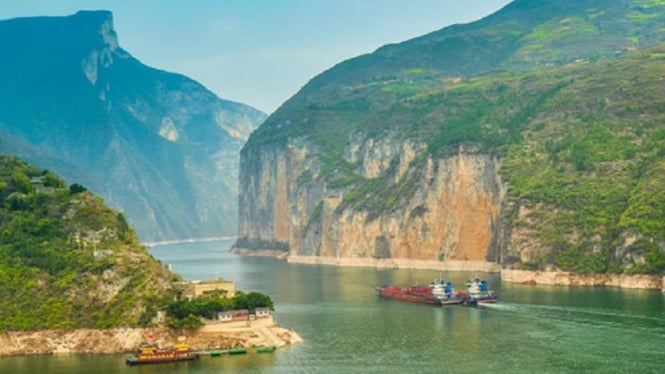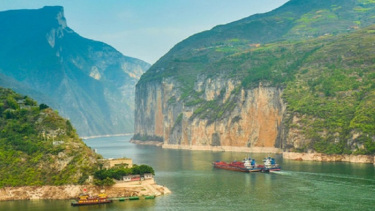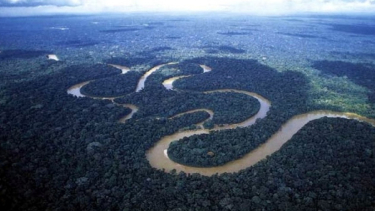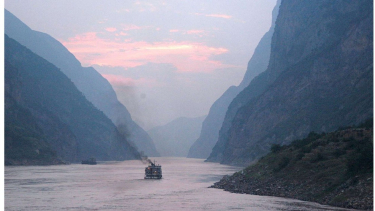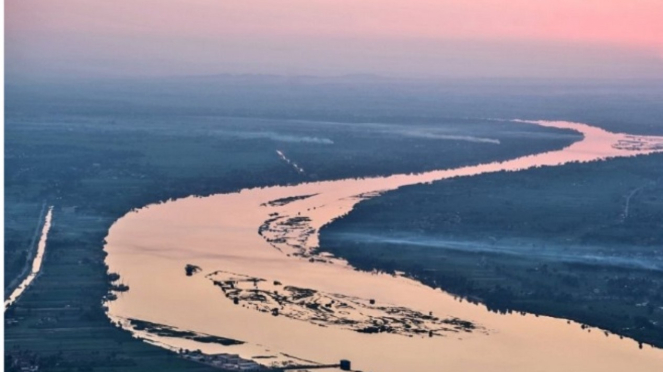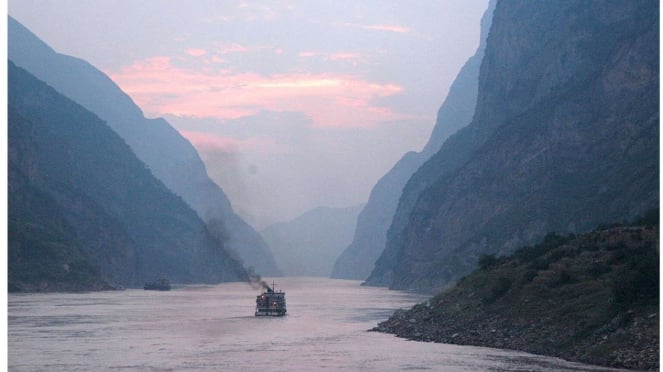List of the Longest Rivers in the World
- U-Report
VIVA – The river is a naturally wide flow of fresh water across the land into the sea. More than 70% earth is water. Therefore, it is no doubt that rivers and waterways have a significant role in humans, animals, and ecosystem life.
Freshwater rivers can be used as a source of drinking water, habitat, irrigation source, transportation, and even as a source of power. It turns out that there are some of the longest rivers in the world, as follows.
1. Nile River (6,650 Km)
Sungai Nil
The Nile is measuring roughly 6,650 kilometers in length. It runs through a large portion of the continent of Africa and flows through several countries, including Uganda, Ethiopia, Sudan, South Sudan, the Democratic Republic of the Congo, Kenya, Tanzania, Rwanda, Burundi, and Egypt.
The Nile is a major source of water and transportation. The waters of the Nile support approximately 40% of the population of Kenya, and it is home to several animals as well, including hippopotami, Nile crocodiles, and other animals which use the river as a source of freshwater.
2. Amazon River (6,400 Km)
Sungai Amazon
- U-Report
The Amazon River is measuring 6,400 kilometers. It is the largest river in the world as well, with the largest volume or discharge volume. The Amazon is so big that two of the next largest rivers (by volume) are actually tributaries of the Amazon.
The river runs through three countries in South America: Brazil, Peru, and Colombia, and empties into the Atlantic Ocean. The area surrounding the river, namely the amazon rainforest, is known for being an extremely biodiverse area.
3. Yangtze River (6,300 Km)
Sungai Yangtze, Cina
- wikipedia.org/Yangtze River
The Yangtze River in China measures 6,300 kilometers and is the third longest river in the world and the longest river in Asia. The river flows in an eastern direction across much of China, emptying into the East China Sea. The Yangtze is a major water source within China.
It has been used for drinking water, transportation, and irrigation and has been significant during wartime. Today, the Three Gorges Dam is the world's largest power station, pulling power from the river.
4. Mississippi River (6,270 Km)
Sungai Missisipi.
- http://www.gomuda.com
The Mississippi-Missouri River System, in the southern United States, has a length of 6270 kilometers. These rivers are the two longest rivers in the United States but because they flow into one another, they are often thought of as one major river or river system.
The Mississippi River has historically been a major source of transportation and is also home to a large array of wildlife. The Mississippi Delta, specifically, has a range of ecosystems that include everything from Cyprus groves to marshes and sandy beaches.
5. Yenisei-Angara-Selenga River (5,500 Km)
The Yenisei River measures 5,550 kilometers. This system is made up of several rivers that run through Russia and Mongolia, emptying into the Arctic Ocean. Though the river is not particularly deep, it flows into Lake Baikal, the deepest and oldest lake in the world.
Many fish live within the Yenesei, and the banks are a significant habitat for migratory reindeer, the Aimyr herd, the largest tundra reindeer in the world. Unfortunately, it is believed that the river system suffers from contamination due to radioactive discharge from a secret bomb-making facility.
6. Yellow River (5,464 Km)
Aliran sungai Kuning Cina
- U-Report
The Yellow River, also known as the Huang He or Huang River. It has a length of approximately 5,464 kilometers. The river flows through nine different provinces in China, from the western province of Qinghai to the Bohai Sea near Dongying.
The Yellow River is historically significant as it was the home of major settlements in early Chinese history. The river has also been known to have significant flooding periods, which changed the course of the river throughout history. The river is now home to several major hydroelectric dams and power plants.
7. Ob - Irtysh (5.410 Km)
The Ob River measures roughly 5,410 kilometers and runs through much of Russia, eventually emptying into the Arctic Ocean. The third largest city in Russia, Novosibirsk, is located along the river's banks, and the famous trans-Siberian Railroad crosses the river in this city as well.
The Ob is significant to Russia and Siberia, both geographically and in terms of industry. The river is used as a source of drinking water and irrigation and provides hydroelectric power through various power plants like Novosibirskaya GES.
8. Rio De La Plata (4.880 Km)
Rio de la Plata measures 4,880 kilometers long. This river runs through Argentina and Uruguay and includes the Parana and the Rio Grande. It is also the widest river in the world, opening into a bay-like area at its eastern end.
Notably, the river is an estuary, receiving fresh water from the Parana River and Uruguay River, and saltwater from salty ocean tides and currents. Because of this, the river is a habitat for many marine species, such as green, loggerhead, and leatherback sea turtles, as well as the rare Ls Plata dolphins.
9. Congo River (4.700 Km)
The Congo or Zaire River is the second-longest river in Africa. It also has a depth of up to 220 meters, making it the deepest known river on record. The Congo River, which consists of the Congo Lualaba and Chambeshi Rivers, measures 4,700 kilometers in length.
The river flows through much of the Congo and crosses over the equator on two occasions before draining into the Atlantic Ocean.
10. Amur River (4,444 Km)
The Amur River is the tenth-longest river in the world and measures approximately 4,444 kilometers. The river forms a natural border between the Russian Far East and Northeastern China, flowing into the Sea of Okhotsk, the Pacific Ocean, and the Strait of Tartary.
The river is home to a wide range of animals, including the Amur softshell turtle and various fish species. Many of these are larger predatory fish like Amur pike, northern snakehead, and carp, as well as the massive Kaluga, which has been known to reach over 5.5 meters in length.

